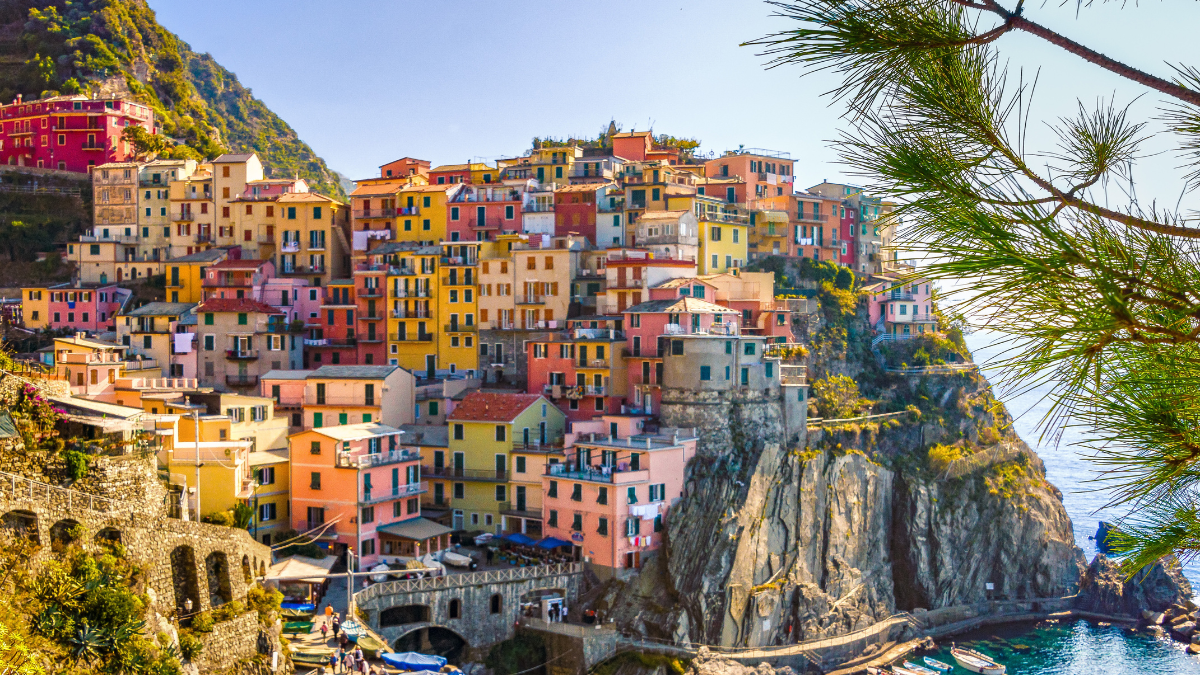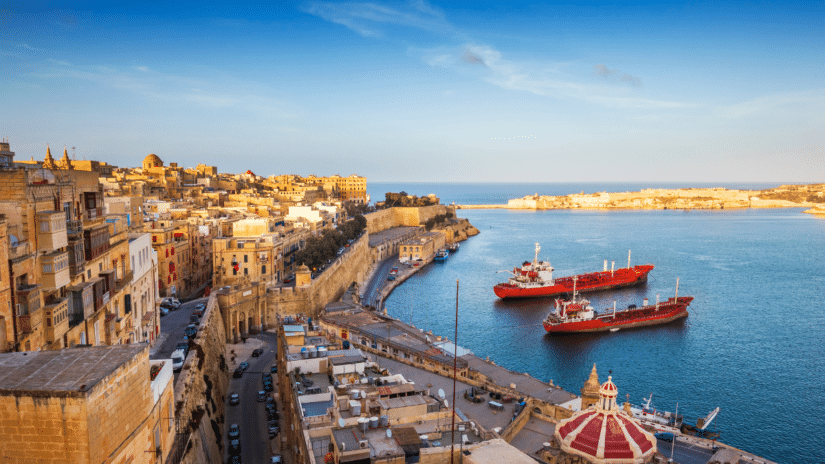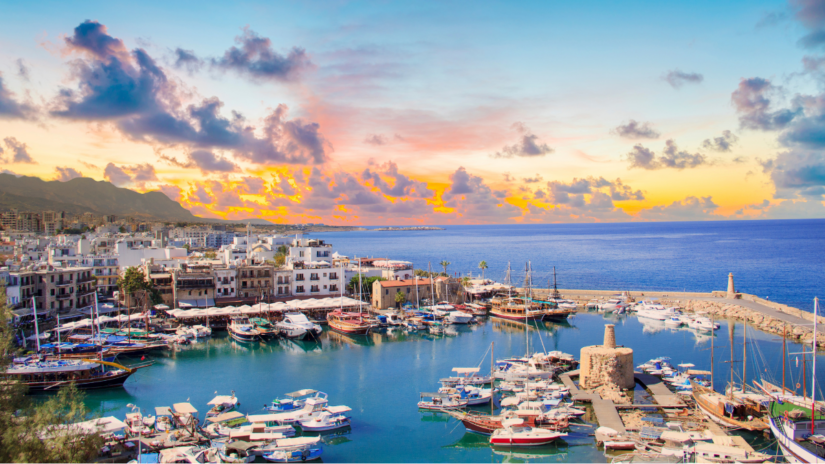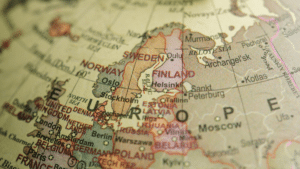Best Places to Buy Real Estate in Europe – Part
In the previous article, I’ve covered some of the places known to be the best to buy a property in Europe, which include:
⁃ Portugal
⁃ Spain
⁃ France
⁃ Switzerland
⁃ Germany
In this article, I will cover some more countries in Europe, which are the best for purchasing a property.
Italy

In Italy, more than 70% of individuals are homeowners, a practice rooted in the tradition of passing property down to family members.
Additionally, the presence of high rental prices in certain regions can render property ownership more appealing.
This is because it allows for a swift return on investment and the potential to generate rental income.
Benefits of Purchasing a Property in Italy
Let us have a look at some of the advantages of purchasing a property in Italy.
- Affordable residential and commercial real estate.
- A wide range of housing options.
- No inheritance tax.
- A capital gains tax rate of 20% on profits from property sales.
- Diverse architectural styles.
- A stable real estate market.
- A serene and unhurried rural lifestyle.
- Well-developed infrastructure.
- Luxurious resorts and pristine beaches.
- Stunning natural landscapes, breathtaking vistas, and environmentally friendly surroundings.
- A rich culture, hospitable people, and delectable, healthy cuisine.
- A pleasant and favorable climate.
- Esteemed universities and a strong education system.
Buying as an Expat
Buying property in Italy is relatively unrestricted, especially for UK nationals and citizens of countries with similar agreements.
You don’t need a non-EU national residence permit to buy property in Italy if you lived there before January 1, 2021 (Brexit’s end).
Instead, you may have to provide documentation proving your rights under the UK’s Withdrawal Agreement, like an EU residency certificate.
Owning property doesn’t automatically grant you citizenship or long-term residency.
To stay in Italy permanently, you must explore visa options and go through the standard residency application process.
Here’s a simplified guide for buying property in Italy:
- Investigate mortgage options.
- Collaborate with a real estate agent to find suitable properties.
- Select a property and make an offer.
- Draft and review a sale contract, which must be notarized in Italy.
- Sign the contract.
- Fulfill tax obligations.
The property buying process in Italy typically takes around six months.
Legal requirements are generally straightforward. While a translator isn’t mandatory, it’s wise to hire one if you don’t speak Italian fluently.
You must engage a notary to handle your contracts.
The upfront fees include a 1% deposit of the purchase price upon making an offer, which shows good faith.
After signing the preliminary contract (compromesso), the deposit increases to 10-20% of the sale price.
If you back out of the deal, you may lose the deposit, while the seller is typically required to pay double the deposit amount if they withdraw from the transaction.
Costs of Purchasing a Property
When determining your overall budget, it’s essential to consider the following taxes and fees:
- Registration Tax: 3-7%
- VAT: 4-22%
- Land Registry Tax: 1%
- Notary fee: 1% to 2.5%
- Translator fee: Approximately €250 to €350
- Estate agent fee: 1.50% to 4%, plus 22% VAT
- Legal fees: 1% to 2%, plus 22% VAT
Property Market
Overall, Italy’s real estate market is currently relatively stable, which is a positive development following the economic disruptions caused by the COVID-19 pandemic.
People view the property as a secure investment, and data reveals that house prices rose by 1.1% in the 12 months leading up to February 2021.
Best Places to Buy
Some of the best places to purchase a property in Italy include:
- Sardinia
- Basilicata
- Lombardy
- Puglia
- Turin
- Tuscany
- Veneto
- Sicily
- Umbria
- Romagna
Some of these places are known to offer prime real estate properties, and therefore, you can expect certain high prices.
Cheap Places
Let us now take a look at some of the cheapest places to purchase a property in Italy.
- Abruzzo
- Basilicata
- Calabria
- Campania
- Emilia-Romagna
- Friuli Venezia Giulia
- Lazio
- Liguria
- Lombardy
- Marche
- Molise
- Piedmont
- Puglia
- Sardinia
- Sicily
- Tuscany
- Trentino-Alto Adige
- Umbria
- Valle d’Aosta (Aosta Valley)
- Veneto
This makes it clear that most of the regions in Italy are known to offer properties at a cheaper price.
€1 Housing
The Italian government is selling houses for one euro to attract foreign buyers and revitalize abandoned areas.
However, there are important things to consider before jumping in.
- It’s a Bidding System
These houses start at one euro, but the final price depends on competitive bidding, which can be much higher.
- Location
These houses are often in remote areas far from major cities, where the local economy may be weak and communication challenging.
- Renovations
Extensive renovations are usually needed, and you must hire local specialists due to historic preservation regulations.
- High Taxes
Property-related taxes like registration tax, notary fees, and property tax can add to the overall cost.
- Additional Costs
You may need to pay a deposit, typically around €5,600, and a real estate company fee of €400.
These factors can make owning a one-euro house more costly than expected, so careful financial planning is essential.
Malta

Malta became one of the significant European destinations for expats over the past decade.
Malta Permanent Residence Programme
Malta offers a program known as the Maltese Residence Program with multiple benefits.
- Malta is part of the EU, which means you get residence in an EU country.
- You will be getting a Schengen visa, which allows visa-free travel to the Schengen area for 90 days.
- With the residence program, you get to reside in Malta for an indefinite period.
- The investment timeframe is only for the first five years, and there is no minimum residence requirement.
- Additionally, you can even include your family members with the help of this program.
The requirements to acquire the Malta Permanent Residence program are as follows:
- The primary applicant is necessitated to be 18 years old and possess a capital of at least €500,000. Of this amount, €150,000 should be maintained in financial assets.
- The individual should purchase a property worth at least €350,000, which can be €300,000 if it is in South Malta or Gozo.
(or)
The individual should lease a property worth €12,000 per year, which can be €10,000 if it is in South Malta or Gozo.
- The individual should contribute an amount of €28,000 to the Maltese economy if a residential has been purchased.
(or)
The contribution should be €58,000 if a property has been leased.
- An amount of at least €2,000 should be donated to a non-governmental organization.
- There is also an administration fee of at least €40,000, which is non-refundable.
- An additional payment of €50,000 should be included for each additional family member.
Benefits of Purchasing a Property
Here are some advantages of purchasing property in Malta:
- Demonstrated Return on Investment.
- No Ownership or Wealth Tax.
- Straightforward 5%-8% Final Withholding Tax on Sale (No additional Capital Gains Tax).
- 5% Stamp Duty.
- Flat 15% Tax on Rental Income.
- No VAT on the Transfer of Immovable Property.
- Global Accessibility.
- Easy Access to EU.
- Schengen Visa.
- Advantageous Tax System.
Buying as an Expat
To purchase property in Malta, you don’t have to be a resident, but you must obtain an Acquisition of Immovable Property (AIP) permit.
It involves a fee, and you can typically expect to receive the permit in about 35 days.
For both non-residents and EU citizens buying property in Malta, there is a restriction that allows ownership of only one property.
There is however an exception when purchasing in a Special Designated Area (SDA).
In these exclusive zones, resorts, or developments that promote foreign investment, you can acquire multiple properties without requiring an AIP.
Costs of Purchasing a Property
The cost of real estate in Malta varies depending on the type of property and its location.
To obtain a mortgage from a Maltese bank as an expat, you need to meet certain conditions.
This includes getting permission from the Central Bank of Malta, opening and maintaining an active Maltese bank account, and taking out life insurance, possibly requiring other types of insurance.
Meeting these requirements typically allows you to secure a loan-to-value ratio (LTV) of around 80% as a foreign borrower.
When applying for a mortgage, you’ll generally be required to provide various documents as part of your application, such as:
- Proof of identification
- Address
- Income (including payslips and bank statements)
You may also need to present the preliminary agreement for your property purchase.
In addition to the property price, there are several taxes and fees associated with buying a home in Malta that buyers should be aware of.
These costs include:
- Provisional stamp duty (1% of the preliminary agreement)
- Remaining stamp duty (4% of the property price)
- Notary fees (typically between 0.25% to 1%)
- Registration fees (ranging from 0% to 1%, plus 18% VAT)
Property Market
To give you an idea of property prices in Malta, let’s look at the approximate prices per square meter for apartments, terraced houses, and townhouses in different regions:
Gozo (including Rabat):
- Apartment: €1,450 per sq.m
- Terraced House: €2,350 per sq.m
- Townhouse: €1,750 per sq.m
Northern Region (including St. Paul’s Bay):
- Apartment: €2,300 per sq.m
- Terraced House: €4,000 per sq.m
- Townhouse: €3,000 per sq.m
Northern Harbour (including Sliema):
- Apartment: €3,150 per sq.m
- Terraced House: €3,500 per sq.m
- Townhouse: €3,400 per sq.m
South Eastern Region (including Marsaskala):
- Apartment: €2,000 per sq.m
- Terraced House: €2,850 per sq.m
- Townhouse: €2,400 per sq.m
Southern Harbour (including Valletta):
- Apartment: €2,300 per sq.m
- Terraced House: €2,850 per sq.m
- Townhouse: €3,000 per sq.m
Western Region (including Mdina and Zebbug):
- Apartment: €2,200 per sq.m
- Terraced House: €3,750 per sq.m
- Townhouse: €3,000 per sq.m
Similar to many countries, Malta’s economy, and consequently its real estate market, felt the impact of the coronavirus pandemic in 2020.
Before the global health crisis, Malta’s property market displayed modest yet consistent growth.
In 2018, property prices saw an almost 12% increase, followed by a more subdued 2.5% rise in 2019.
Despite the challenges posed by the pandemic, Malta’s property market demonstrated resilience in 2020, with a 5% increase in property prices.
As the country’s economy begins its recovery, some experts anticipate that both property demand and prices will experience rapid growth.
This presents an opportune moment to consider investing in more affordable properties.
Best Places to Buy
Some of the best places to purchase a property in Malta, especially as an expat, are as follows:
- Sliema
- St. Julian’s
- Valetta
- Three Cities
- Gozo
- Marsaxlokk
- St. Paul’s Bay
- Qawra
- Mellieha
Cheapest Places to Buy
Listed below are some of the affordable places in Malta to purchase a property.
- Marsa
- Qormi
- Mosta
- Fgura
- Rabat
- Zebbug
- Birkirkara
Through extensive research, you can find some other properties that may be considered budget-friendly.
Cyprus

Cyprus is gaining a lot of popularity in the real estate market of Europe, which includes holiday homes as well as rental properties.
The country offers citizenship and residence through two different investment schemes.
Citizenship Through Investment
For citizenship, the requirement is to purchase real estate worth €2 million exclusive of VAT, which can be a single property or multiple units.
If you wish to include your parents or your spouse’s parents, you must include an additional investment of €5000 on your property purchase.
Additionally, individuals should make a donation of:
- €100,000 to the Cypriot Government Research and Development Fund
- €100,000 to the Cypriot Land Development Organisation
There are some additional requirements like a clear criminal record, transfer, necessary documents, etc.
Residence Through Investment
For residency, the requirement is to purchase real estate worth at least €300,000 in Cyprus.
There is also a requirement for maintaining a bank deposit of €30,000, which should be kept for at least three years.
The annual income of the applicant should at least be €30,000 with an additional €5,000 for each dependent (spouse and children).
An additional €8,000 should be included for the applicant’s parents or their spouse’s parents.
Benefits of Purchasing a Property
Some of the benefits of purchasing a property in Cyprus are as follows:
- A wide range of available real estate assets.
- Stable economy.
- Great education system.
- Exceptional healthcare.
- Low corporate income tax.
- Excellent transport facilities.
- Good climate and geographical conditions.
Buying as an Expat
Yes, the good news is that foreigners are permitted to acquire property in Cyprus.
The process is notably more straightforward than in many other European nations.
For European Union (EU) citizens, purchasing property in Cyprus comes with no restrictions.
However, the scenario has slightly evolved for non-EU nationals as certain permissions may be necessary.
Costs of Purchasing a Property
If you need a mortgage, Cypriot banks are willing to help.
Typically, you’ll need to provide various documents, such as proof of identity and income.
Foreign buyers might be asked for a larger down payment (40-50%) and face slightly higher interest rates (around 6-7.5%) compared to locals (3-5%).
Additional fees and taxes when buying property in Cyprus include:
- Transfer fees (3-8%)
- Stamp duty (0.15-0.20% of the property price)
- Legal fees (0.10-1%)
- VAT (19%)
Seller pays estate agent fees.
Property Market
Property prices in Cyprus vary widely based on location.
Prime areas like the capital, Nicosia, and the trendy wine-making region of Limassol are more expensive.
Prices also depend on how close you are to city centers.
To give you an idea of property prices in popular locations, here are approximate prices per square meter in British pounds (GBP):
Limassol
- £2,800 in the city center
- £1,900 outside the city center
Nicosia
- £2,100 in the city center
- £1,500 outside the city center
Paphos
- £1,400 in the city center
- £1,000 outside the city center
Larnaca
- £1,750 in the city center
- £1,200 outside the city center
Famagusta
- £690 in the city center
- £550 outside the city center
The actual prices may vary based on the specific region as well as the type of property.
Cyprus’ property market has two main areas: urban centers like Nicosia, Limassol, and Larnaca, and coastal resorts in Paphos and Famagusta, popular among expats.
Before 2020, the property market was doing well, but the COVID-19 pandemic hit both the economy and real estate.
In 2020, property sales contracts dropped by 23%, and by 2022, there was a rising demand for real estate in Cyprus, particularly for land and luxury homes.
Best Places to Buy
Some of the best places to purchase a property in Cyprus have been listed below.
- Paphos
- Famagusta
- Limassol
- Larnaca
- Nicosia
Some of the places mentioned above might come with an expensive price tag, so be wary of the prices.
Especially considering the type of property that you want to purchase in those places.
Cheapest Places
The most affordable places to purchase a property in Cyprus are listed below.
- Nicosia
- Limassol
- Larnaca
- Paphos
With thorough research, you might be able to find a place that suits your budget.
Honorable Mentions
Apart from these countries, some other countries are deemed best for buying real estate in Europe.
They are:
Ireland
Ireland offers some of the best rental yields in Europe.
Rental yields typically exceed 7%, with Dublin often reaching over 8%. Tax on rental income is relatively low, around 10%.
However, it’s crucial to collaborate with local experts to navigate specific concerns.
For instance, real estate experts advise buyers to check for pyrite contamination, a potential long-term property damage issue in parts of Dublin and other areas.
Some of the best places to purchase real estate properties in Ireland are Dublin, Cork, Galway, Limerick, etc.
Greece
What: Greece is undoubtedly a top tourist destination, contributing significantly to the country’s GDP (20%).
Rental yields vary widely across the nation.
The average return is around 5.41%, but in cities like Thessaloniki and specific Athens neighborhoods, yields can surge well beyond 8%.
Greece’s political landscape has seen some instability over the past decade, but recent years have brought more stability and predictability.
The thriving tourist industry attracts visitors to explore historical landmarks and stunning islands.
Consequently, short-term rentals, with over 150,000 Airbnb listings in Greece, are popular.
Additionally, Greeks have a high homeownership rate, standing at 72.8% in 2022, as reported by Trading Economics, making medium- and long-term rentals less appealing.
However, potential buyers, particularly non-EU nationals, need to exercise caution.
Acquiring property may involve a more complex process, and there’s a possibility of being denied the purchase of properties in certain areas.
Poland
Poland’s burgeoning economy and budget-friendly property rates make it an ideal selection for cost-conscious purchasers.
As a member of the EU, it presents an appealing option with diverse property choices, ranging from apartments to summer residences.
Serbia
Serbia’s historic allure and cost-effective property values position it as a potential choice for those in search of distinctive, budget-friendly properties.
It holds promise for investors in pursuit of economic opportunities and potential returns.
Things to Consider
Each country has its own financial considerations, including:
- Local taxes
- Potential capital gains obligations
- Property inheritance implications
- Inheritance tax responsibilities
It’s worth noting that in the near future, property investors can anticipate reduced net returns.
This is primarily due to increasing taxes and expenses in many European countries, such as the Netherlands.
Although these fiscal factors can impact returns, the remarkably low borrowing costs offset these challenges.
- Properties to Consider
One notable trend in the European property market is the increasing preference for smaller homes over grand villas.
Large, costly properties can be burdensome to maintain, making compact, luxurious apartments more appealing.
This is especially the case for seniors who are willing to invest in hassle-free, high-end living spaces.
Younger people often rely on parental support to afford a property, as traditional bank savings yield minimal returns due to low interest rates.
In this context, parents may choose to invest in smaller, affordable housing for their children, offering better returns than leaving money in the bank.
This shift towards smaller, energy-efficient properties is both a financial and social trend.
This prompts property developers and investors to explore medium-sized or smaller residential options that align with energy-efficient goals.
- But-To-Let Investments
The buy-to-let investment trend has gained momentum, with real estate increasingly regarded as an investment asset.
Families are also acquiring European properties as second homes to secure tenants.
Although rental yields from buy-to-let properties typically range from 2% to 4% net after expenses.
This represents a potential avenue for higher returns compared to the meager yields of long-term corporate bonds.
- Returns
In European core markets, investors should expect positive but modest returns, with a primary focus on cash returns rather than capital gains.
The commercial market shares a similar pattern, offering cash returns of around 4-6% in established office and retail markets.
Recovering markets in southern and central Europe or regional cities may present higher returns but also carry increased risks.
Despite the stable value of the euro, European real estate remains in high demand, and it constitutes an intriguing asset class.
Nevertheless, investors should maintain realistic return expectations without overestimating potential gains.
Bottom Line
I strongly hope that the information presented in this article was helpful in knowing about the best locations to purchase real estate in Europe.
However, it is suggested to pay attention to some of the crucial aspects such as taxes, costs, property prices, resale opportunities, etc.
Furthermore, I even included the details regarding residence/citizenship through investment in real estate to make the most of your investments.
That being said, if you are an expat or an HNWI looking for best-in-class financial services, you are in the right place.
Feel free to contact me to know whether you can benefit from my investment solutions.
Pained by financial indecision? Want to invest with Adam?

Adam is an internationally recognised author on financial matters with over 830million answer views on Quora, a widely sold book on Amazon, and a contributor on Forbes.



